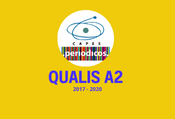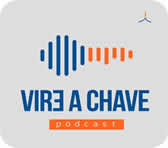Warrantless Search and Seizure and Search Incident to an Arrest
Views: 62Keywords:
Legal Opinion, Warrantless search and seizure, Probable cause, Precedents from the Brazilian Supreme CourtAbstract
This legal opinion analyses the legitimacy of a warrantless search and seizure as an incident to an arrest. Although the search warrant specified the premises where it was meant to be executed, police gained access to a different location, where contraband was eventually seized. Meanwhile, the purported arrestee was already under the custody of police. Even though the police had acted facially outside the scope of the warrant, the trial judge held that the search was incident to an arrest and, hence, the evidence was admissible. This legal opinion puts it into perspective precedents of the Supreme Court of Brazil, the Supreme Court of the United States and historical common law leading cases between 1660 and 1800, distinguishing (i) warrantless search, (ii) arrest incident to a search, (iii) search incident to an arrest. Considering that the seized objects were found in a dwelling facially outside the scope of the warrant, that police did not request a valid warrant to the issuant magistrate, and that the search could not have been held incidental to an arrest, this legal opinion concludes that such evidence was illicit and, therefore, inadmissible in court.
Downloads
Publication Facts
Reviewer profiles N/A
Author statements
Indexed in
- Academic society
- Instituto Brasileiro de Ciências Criminais
- Publisher
- Editora Revista dos Tribunais (RT)
References
Astley v. Pinder, Cowp. 7.
BRASIL, Lei n. 261 de 3 de dezembro de 1841. Disponível em: http://www.planalto.gov.br/ccivil_03/leis/lim/lim261.htm. Acesso em: 22 fev. 2021.
BRASIL. Código Criminal do Império do Brazil, de 16 de dezembro de 1830. Disponível em: http://www.planalto.gov.br/ccivil_03/leis/lim/lim-16-12-1830.htm. Acesso em: 22 fev. 2021.
BRASIL. Código de Processo Criminal de Primeira Instância, de 29 de novembro de 1832. Disponível em: http://www.planalto.gov.br/ccivil_03/leis/lim/lim-29-11-1832.htm#:~:text=LEI%20DE%2029%20DE%20NOVEMBRO%20DE%201832.&text=Promulga%20o%20Codigo%20do%20Processo,da%20administra%C3%A7%C3%A3o%20da%20Justi%C3%A7a%20Civil.&text=4%C2%BA%20Haver%C3%A1%20em%20cada%20Districto,de%20Justi%C3%A7a%2C%20que%20parecerem%20necessarios. Acesso em: 22 fev. 2021.
Byars v. U.S., 273 U.S. 28 (1927).
Collins v. Virginia, 548 U.S. (2018).
CUDIHY, William J. The fourth amendment: origins and original meaning, 602–1791. New York: Oxford University Press, 2009. p.110.
Entick v. Carrignton, SC. 19 How. St. Tri. 1030 (1765).
G.M. Leasing Co. v. U.S., 429 U.S. 338 (1977).
GRAWE, Stefan. Die Strafprozessuale Zuffalsverwendung. Tubingen: Mohr-Siebeck, 2008. p. 67-70.
Henry v. U.S., 361 U.S. 98 (1959).
Horton v. California, 496 U.S. 128.
Johnson v. U.S., 333 U.S. 10 (1948).
Lee v. Gunsell, Cowp. 1. S.C. Loft. 374.
Lloyd v. Sandilands, 8 Taunt. 250. SC 2 B. Moore 207.
Marron v. U.S., 275 U.S. 192 (1927).
Ratclife v. Burten, 3 Bos & Pull, 223.
Semayne v. Gresham, 5 Co. Rep. 91a. 194 (1604).
Sibron v. New York, 392 U.S. 40 (1968).
STF, HC 106566, Relator(a): GILMAR MENDES, Segunda Turma, julgado em 16/12/2014, PROCESSO ELETRÔNICO DJe-053 DIVULG 18-03-2015 PUBLIC 19-03-2015.
STF, HC 91610, Relator(a): GILMAR MENDES, Segunda Turma, julgado em 08/06/2010, DJe-200 DIVULG 21-10-2010 PUBLIC 22-10-2010 EMENT VOL-02420-02 PP-00237 RTJ VOL-00216-01 PP-00346.
STF, MS 23454, Relator(a): MARCO AURÉLIO, Tribunal Pleno, julgado em 19/08/1999, DJ 23-04-2004 PP-00043 EMENT VOL-02148-03 PP-00503.
STF, MS 23642, Relator(a): NÉRI DA SILVEIRA, Tribunal Pleno, julgado em 29/11/2000, DJ 09-03-2001 PP-00103.
STF, RE 603616, Relator(a): GILMAR MENDES, Tribunal Pleno, julgado em 05/11/2015, ACÓRDÃO ELETRÔNICO REPERCUSSÃO GERAL - MÉRITO DJe-093 DIVULG 09-05-2016 PUBLIC 10-05-2016.
STJ, REsp 1574681/RS, Rel. Ministro ROGERIO SCHIETTI CRUZ, SEXTA TURMA, julgado em 20/04/2017, DJe 30/05/2017.
Terry v. Ohio, 392 U.S. 1 (1968).
TRF4, ACR 5081686-38.2014.4.04.7000, OITAVA TURMA, Relator JOÃO PEDRO GEBRAN NETO, juntado aos autos em 16/10/2015.
U.S. v. Di Re, 332 U.S. 581 (1948).
Wilson v. Arkansas, 514 U.S. 927 (1995).
Downloads
Published
How to Cite
Issue
Section
License
Os direitos autorais dos artigos publicados são do autor, com direitos do periódico sobre a primeira publicação.
Os autores somente poderão utilizar os mesmos resultados em outras publicações indicando claramente este periódico como o meio da publicação original. Se não houver tal indicação, considerar-se-á situação de autoplágio.
Portanto, a reprodução, total ou parcial, dos artigos aqui publicados fica sujeita à expressa menção da procedência de sua publicação neste periódico, citando-se o volume e o número dessa publicação. Para efeitos legais, deve ser consignada a fonte de publicação original.



 Português (Brasil)
Português (Brasil)
 English
English
 Español (España)
Español (España)







